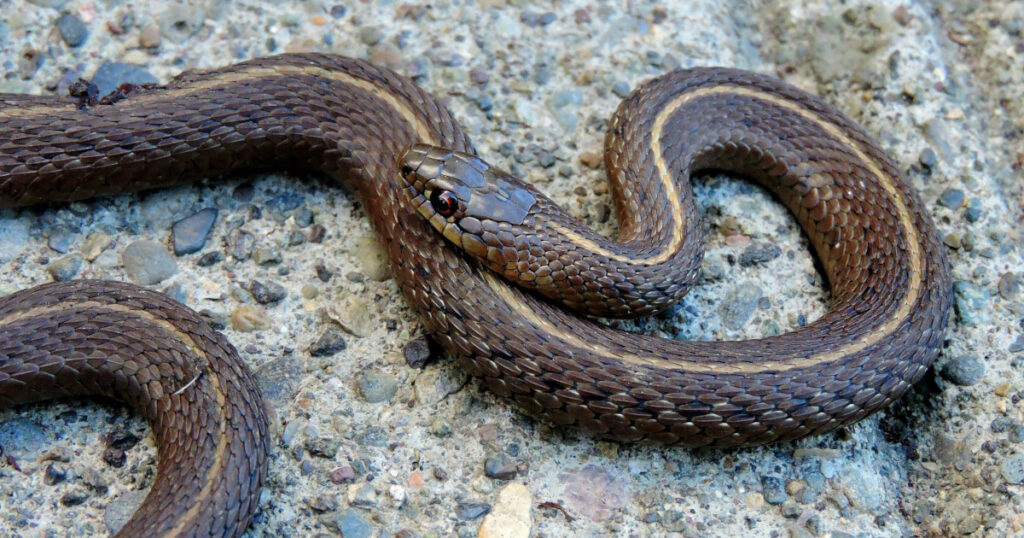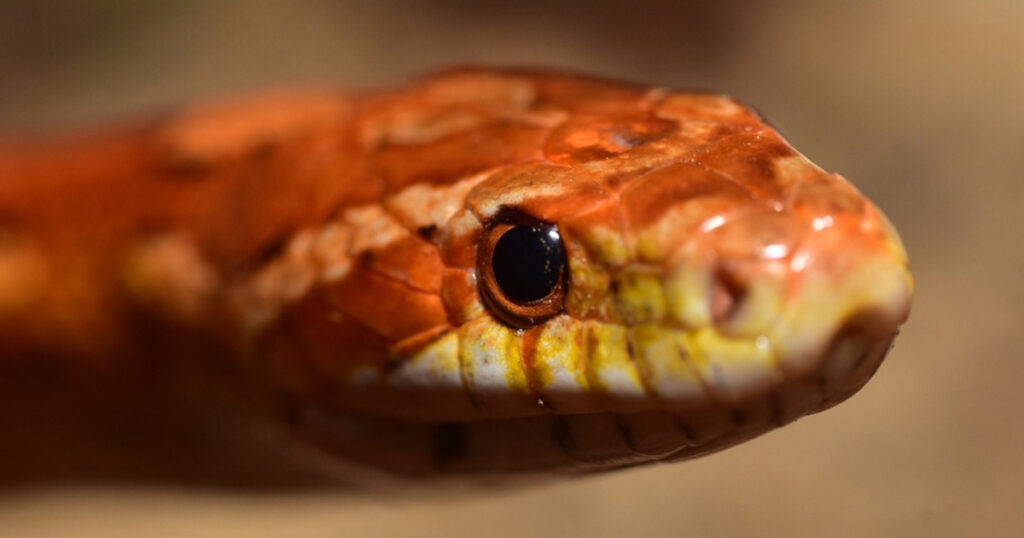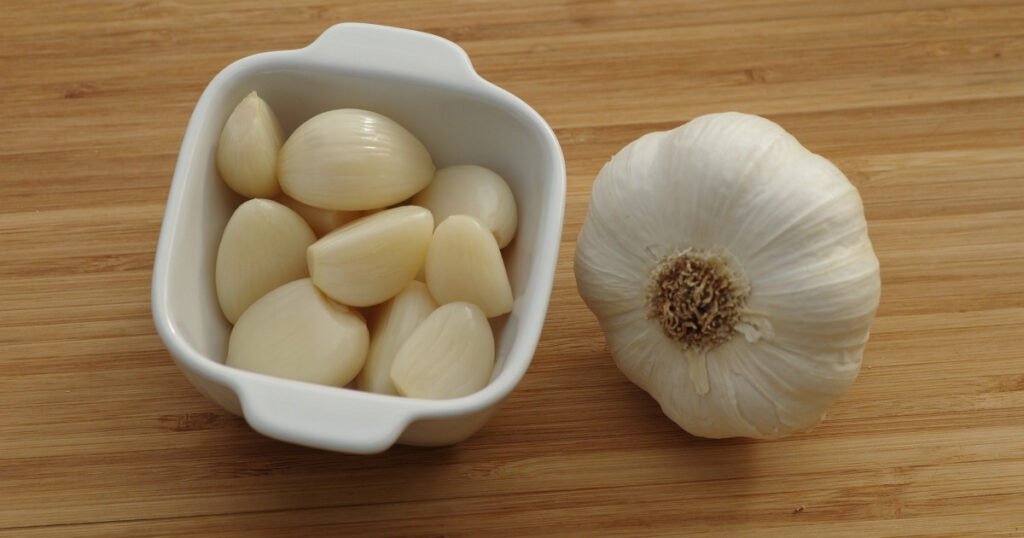Snakes tend to rely on two specific senses: hearing and smell. Both of these have changed to meet environmental and evolutionary needs. However, due to the pressures faced by snakes, these senses have resulted in some unique adaptations that are great assets but also come with significant drawbacks. The smell is one particular problem for snakes.
How do Snakes Smell?

Mammals have receptors within their nose that can help them sense the smells around them. For us and other mammals, it is a very effective way to detect odors that determine dangerous or pleasant options.
Snakes have very different ways to smell. They have a unique smell sensor that is known as Jacobson’s organ. This special organ sits on the roof of the snake’s mouth. The snake flicks its forked tongue into the environment, the tongue collects chemicals that are in the air. And then the tongue places the chemicals on the organ to ‘smell’ the chemicals and determine what is around them.
How do Snakes Use Their Sense of Smell?
Snakes have a very sensitive smell and can detect lots of different smells. These are used for specific reasons, mainly to determine where their prey is. Prey items, especially mammals, have strong smells which are normally species specific. Therefore, snakes use this against them to hunt them.
Another way snakes use their sense of smell is for seeking other members of their species in the breeding season.
They’re also able to use the smell to learn about their environment. They can sense nearby threats like fire and predators as well as other items that can be harmful.
What Smells are Snakes Attracted To?
If you don’t want to have snakes in your yard or house, you will want to avoid certain smells and odors in your home. Snakes are attracted to several smells, mostly associated with rodents, such as rats and mice. For most snakes, this is their primary prey item.
Snakes can also be interested in insect and fish smells. One of the key features of the sense of smell for snakes is that the odor has to be fresh. They’re not very good at sensing an aging scent trail.
Why Have Snakes Developed this Type of Smell

There are several reasons why snakes might have developed this type of smell. The first is because they evolved in environments that require a different way to smell. While it is still uncertain how snakes evolved, whether it was an adaptation to aquatic life or because they borrowed, both environments need adjustments to smell. Another reason is that snakes, like all reptiles, don’t have a diaphragm, so they can’t take deep breaths.
What Smells Will Keep Snakes Away?
If you’re thinking about using the snake’s natural sense of smell against them to keep them away, there are plenty of options. Here is a list of the smells snakes hate and are likely to avoid.
1. Cinnamon or Clove Oil
Traditionally, these are a sign of a freshly baked good. However, for experts who conducted tests, these two oils are smells that repel snakes the best. In fact, in the US, these are the only two scents that are recommended to keep snakes away from your property. However, that doesn’t mean that they are the only ones and the studies that discovered, only tested one species of snake.
2. Vinegar
Vinegar is a surprising option. However, there are many species of animals that use a type of vinegar as a way of defending themselves. There are dozens of species of insects and invertebrates that produce vinegar and spray it when threatened. Therefore, vinegar could be considered a good repellent of snakes from your yard.
3. Mothballs
Another option is to use mothballs in your garden or home. Naphthalene, which is included in mothballs, is something that often repels many animals, including insects and snakes. However, it should be used with caution. Mothballs can be dangerous to other animals and children, especially if they’re eaten. And you would need to reapply for the treatment regularly.
4. Citrus
Citrus is a very common option that allows you to repel a snake from your property. The chemical limonene is something that snakes do not like. Placing citrus plants around your home or in the garden can help you reduce the number of snakes that are around your home. Or you can place a few slices of citrus fruits around your garden.
5. Garlic

Garlic is a smell that snakes don’t like at all. Garlic also has the added benefit that it will keep insects away. Therefore, you can keep your home and garden pest free. Garlic can be planted in your garden, where you have a regular crop. Or you can buy garlic spray or you can spread clothes from the grocery store around your property.
6. Fox Urine
Foxes are natural predators and will often hunt snakes. Therefore, when snakes smell urine from a fox, they will leave an area. Fox urine can be purchased from most outdoor sports stores, especially in states that have a strong hunting tradition.
Conclusion
There are many smells that snakes hate. However, it isn’t just smell that you should use to repel snakes from your garden. You should ensure that areas are clear from potential homes, and food that might attract prey items and you should use other repellents that keep snakes away. One option is to use the Envirobug.
This small device sends vibrations into the ground that simulates a large predator. Snakes pick up these vibrations, which is how the snakes hear. Snakes will want to keep away from this area and therefore, they will move from the location. The device works best in pairs, and you can get more than one pair to cover larger areas.